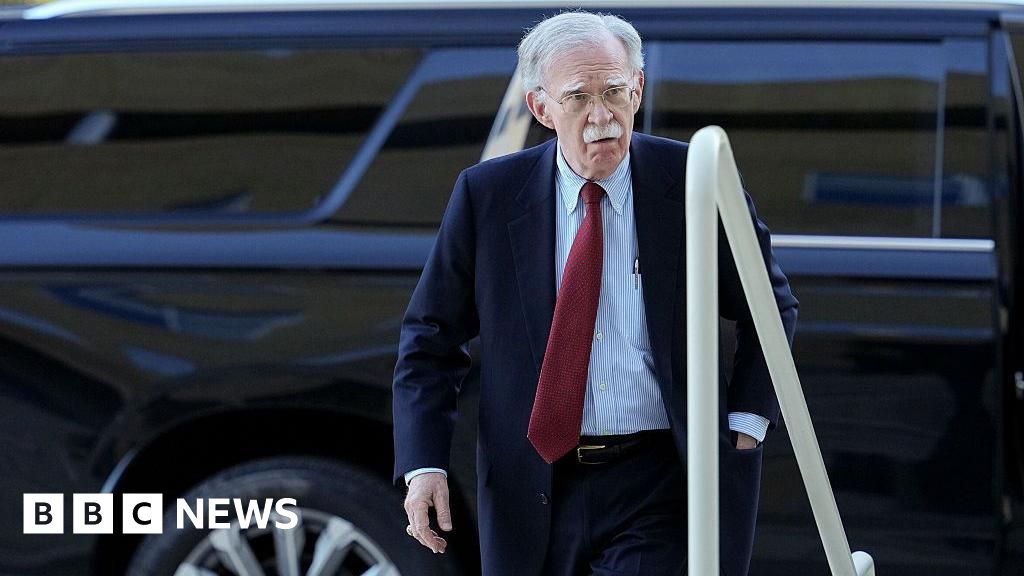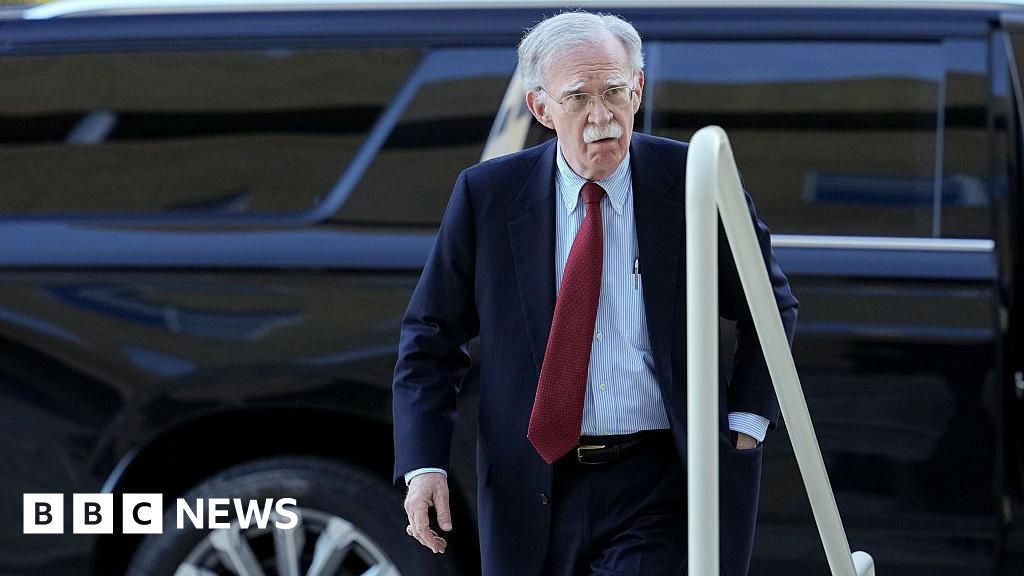
John Bolton, Donald Trump’s former national security adviser, has arrived at a federal court to surrender to authorities on charges of mishandling classified information.
The 18 charges stem from allegations he shared or retained sensitive materials, including some characterised as top secret.
Bolton served during Trump’s first administration but parted with the White House contentiously, and has become one of the president’s most vocal public critics.
The indictment makes Bolton, 76, the third of the US president’s political opponents to face charges in recent weeks. Bolton has said he would defend his “lawful conduct”.
On Friday, Bolton did not respond to shouted questions from reporters as he entered the courthouse in Greenbelt, Maryland, to surrender to authorities.
He is expected to make an initial appearance before a judge and may have to stop at US Marshals office for “possible” fingerprinting and booking photo, CBS News, the BBC’s partner in the US, reported.
Prosecutors have accused Bolton of using personal messaging apps and email to illegally transmit sensitive information.
“These documents revealed intelligence about future attacks, foreign adversaries, and foreign-policy relations,” prosecutors wrote.
Responding to the charges, Bolton said he would defend his “lawful conduct”.
He added he had “become the latest target in weaponizing the Justice Department to charge those he [Trump] deems to be his enemies with charges that were declined before or distort the facts.”
The indictment issued this week accused Bolton of sharing “diary-like entries” with two unnamed individuals, and using his personal email account to transmit messages with sensitive materials.
The indictment also states that between 2019 and 2021, Bolton was allegedly the target of a hacking attack from a “cyber actor believed to be associated with the Islamic Republic of Iran” gained access to his account, exposing the classified materials.
“Like many public officials throughout history, Ambassador Bolton kept diaries – that is not a crime,” Bolton’s attorney, Abbe Lowell, said in response to the charges.
Lowell described the records in question as “unclassified, shared only with his immediate family, and known to the FBI as far back as 2021”.
An indictment in the US justice system is a formal accusation issued by a grand jury – a group of members of the public set up by a prosecutor to review evidence to determine if a case should proceed.
Bolton has been scrutinised for his handling of classified information since 2020, when he sought to publish a book about his time in the first Trump administration.
The Justice Department tried to block the book’s release, alleging it could contain classified information.
A federal judge ruled against the government, but rebuked Bolton in his decision, writing he had “gambled with the national security of the United States”.
An investigation into Bolton continued into the Joe Biden administration, but did not lead to charges.
The Federal Bureau of Investigation searched Bolton’s house and office in August, signalling an active investigation.
Trump has frequently attacked Bolton in social media and criticised him in public statements.
In 2020, when Bolton published his book, The Room Where it Happened: A White House Memoir, the president said he “illegally released much Classified Information” in the book and called his former adviser a “lowlife who should be in jail.”
Upon retuning to office, Trump revoked Bolton’s security detail this year, along with protection for several other political opponents.
Bolton’s indictment comes after Trump’s Justice Department brought criminal charges against two of his political opponents: former FBI Director James Comey and New York Attorney General Letitia James.



